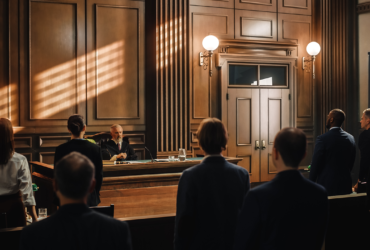The prosecutor is the attorney who represents the government in a criminal prosecution
The prosecutor is the attorney responsible for presenting and arguing the government’s case in a criminal matter against an individual or corporation accused of violating a criminal statute.
The prosecution represents the People and does not represent the victim in the victim’s individual capacity. Individual rights are protected and brought by civil attorneys in civil court.
Distinction Between Prosecutor And Defense Attorney
The prosecutor’s goal is to convict the criminal defendant who is believed to have committed a crime. The criminal defense lawyer’s goal is to present the client’s defense and to zealously protect and defend the constitutional rights of the accused throughout the criminal process including trial.
Prosecutors Must Abide By Strict Ethical Standards
A prosecutor must abide by strict ethical and professional standards. For example, a prosecutor’s refusal to reveal exculpatory evidence (evidence that supports the defendant’s innocence) may be held to be unethical and unlawful and may result in the prosecutor being disbarred from the practice of law. In addition, depending on the severity of the ethical and professional breach, the prosecutor could face criminal charges.



